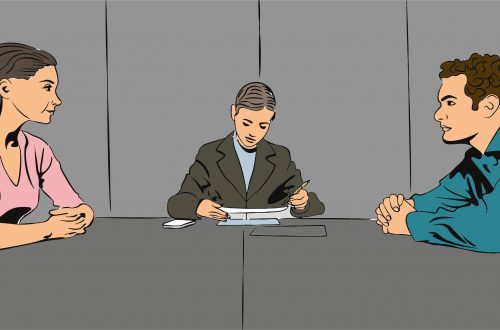Divorce Mediation – What to Expect From an Amicable Divorce Mediator
The goal of Divorce Mediation is to reach a mutual agreement between the parties on all or most of the issues in the divorce. The mediator will ask the parties to explain their positions, look for common ground, and reflect back their points in order to help reach a resolution. Once the issues are framed, the mediator will then continue with the proceedings until each party is satisfied with the outcome. The entire process can take a number of sessions.
One of the most complex aspects of a divorce is the division of assets and debts. Both spouses must be willing to share sensitive information, such as bank accounts, retirement accounts, pensions, stocks, and all other assets and debts. Often, one spouse is more familiar with the family’s assets and liabilities than the other, so it is important to investigate the marital estate thoroughly before agreeing on a property settlement.
The mediator facilitates the process by alerting the parties to details, laying out possible solutions, and helping the couples fill out all the necessary paperwork. A mediator is not a lawyer, but they will be able to explain New York laws to the parties and help them understand how to proceed. This will make the entire process easier. A mediator can also be useful if the issues are too complex for the parties to handle on their own.
Depending on the circumstances of your divorce, you may want to hire an attorney to work on your case. If you want to use an attorney, you may want to hire a divorce attorney to help prepare for the mediation, coach you through the negotiations, or review the final written settlement agreement. Some attorneys only work on certain issues, such as child custody or visitation. Some courts may order mediation in certain situations. If the dispute is particularly complex, a full-scope attorney may choose to represent you in mediation.
While most couples reach an agreement after working out most issues, the process itself can be lengthy. Couples with children may need more than one session to reach an agreement. Couples who have already agreed on most issues might turn to mediation to settle a lingering issue. Depending on the complexity of the divorce and the amount of time needed to reach a fair settlement, they may choose to schedule mediation sessions once every two weeks or weekly. It is important to schedule sufficient time in between sessions so that the parties can reflect and consult with their divorce attorneys.
The benefits of divorce mediation are many. It reduces the stress of divorce, which is especially important when children are involved. However, the mediator can’t force the other party to attend mediation. The mediator should be able to provide enough information about the benefits of mediation to help them decide on the best course of action. It is also important to make sure that your spouse has a good understanding of the steps involved in the process. It is important to remember that mediation can be difficult for children, and that your spouse may not fully understand them.
While divorce mediation involves a third-party neutral, it can also be difficult to achieve an agreement without an attorney. Attorney-mediated sessions may involve significant costs, and most packages include child custody mediation and other court-ordered services. Court-ordered mediation sessions are usually provided through the state or county court system and are generally provided at a discounted rate or sliding scale based on income. There are sometimes waived fees for mediation if your spouse is incapable of paying.
Regardless of which method you choose, you should consider your children’s best interests. Children dislike conflict between parents and a positive relationship between parents can make a child feel better. Divorce mediation helps minimize the negative effects of a divorce on a child. If you have children, choosing mediation is an important step in your divorce process. Once you find a good mediator, the process can proceed smoothly. So, make sure to choose your mediator carefully. If you don’t have a good relationship with your spouse, settling the matter without a judge can take years.
When divorcing, you might have some difficult decisions to make. Whether it’s alimony, division of marital property, or parenting issues, mediation can help you make a mutually beneficial agreement. By allowing each spouse to make their own decisions, the mediator can help you reach a more acceptable settlement. Once you have settled on a mutual agreement, divorce mediation can help you avoid the high cost of attorney fees and high emotional stress.



